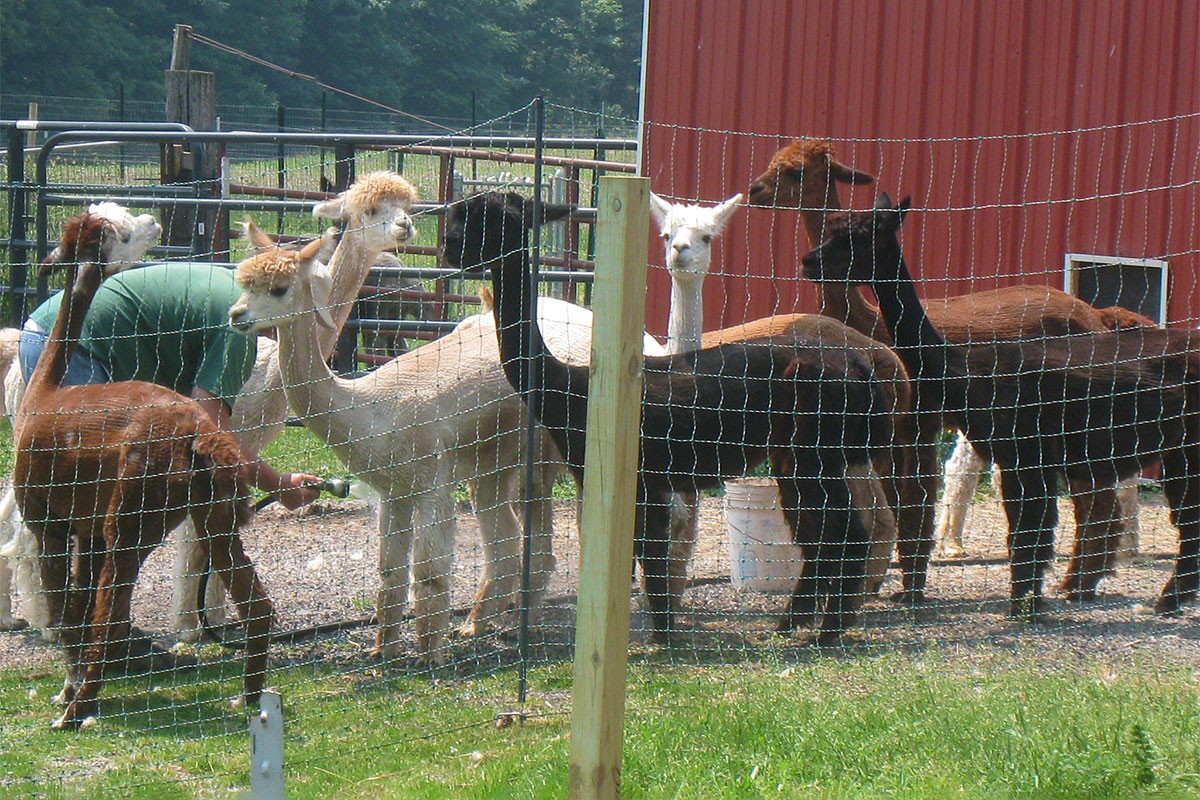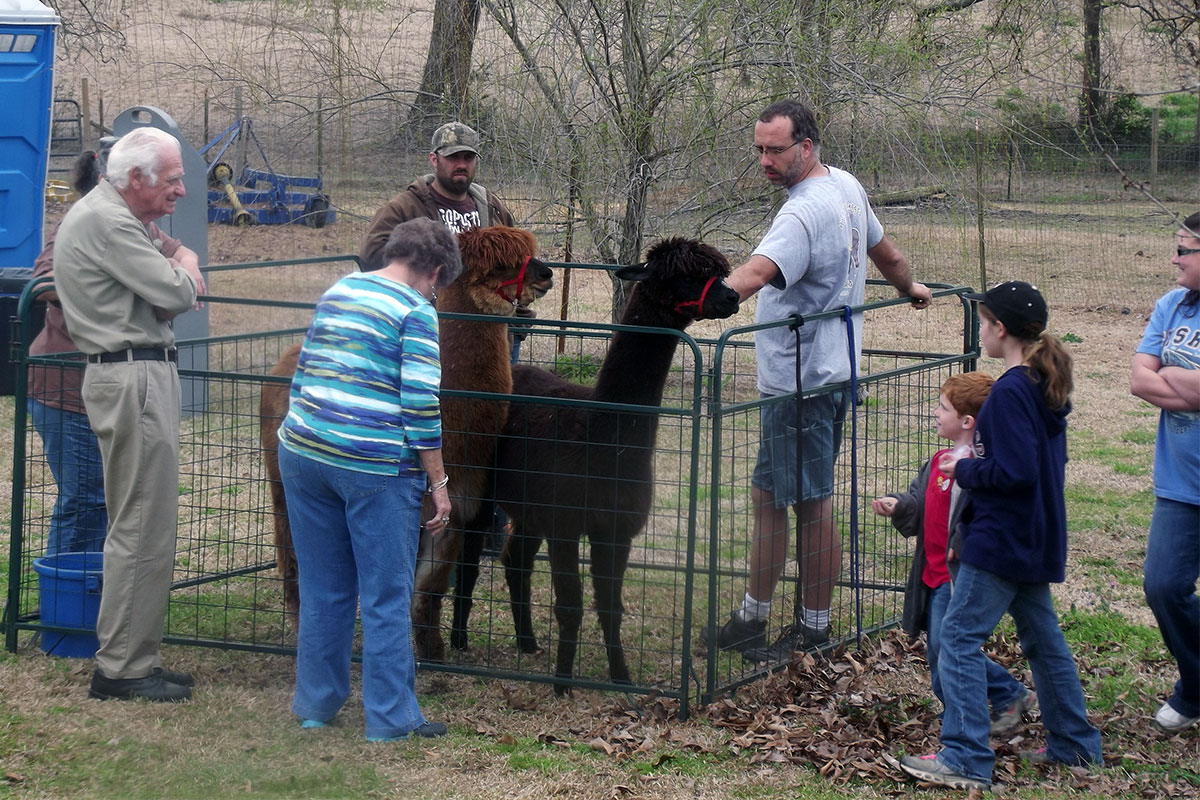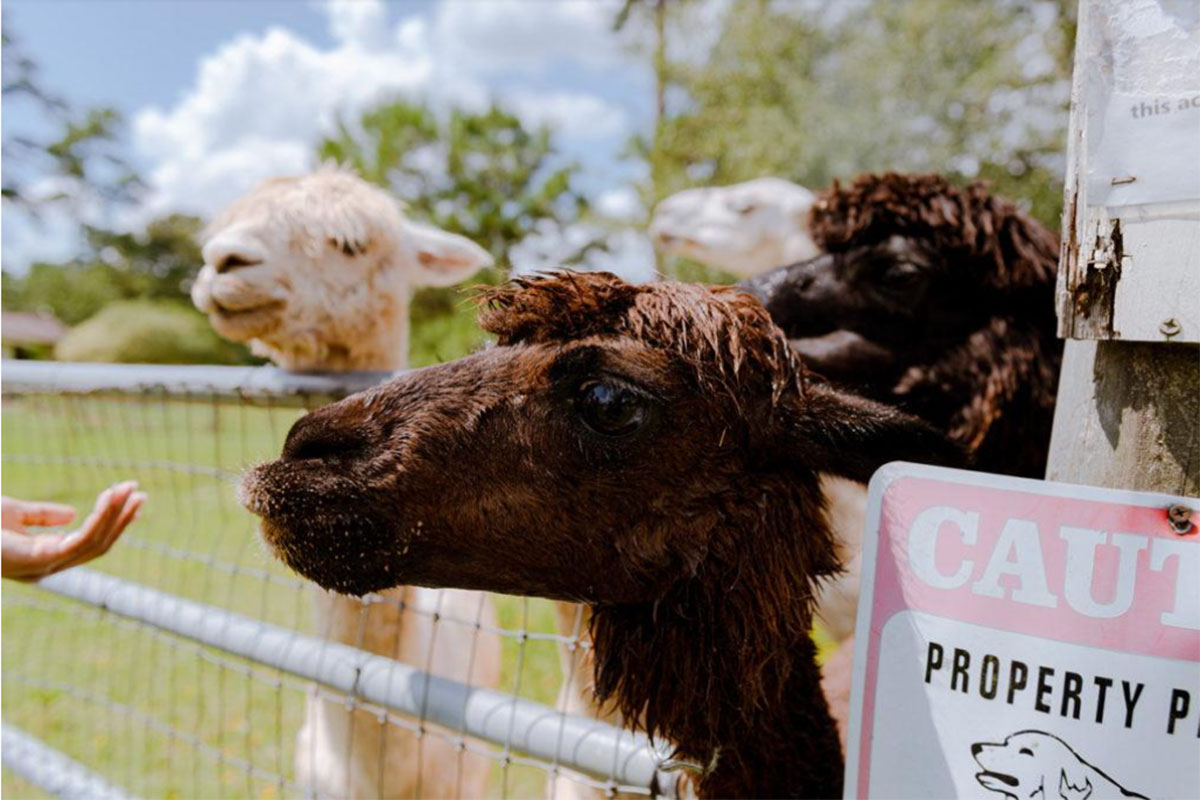Shortly after accepting a position as postmaster for a small town called Middleport located along the Erie Canal in upstate New York, Mary Anne Stroka and her husband of 18 years, Terry Stroka, moved into a rural area with an abundance of farmland. After settling in, they decided to greet some of their neighbors, which led them to a farm that a woman named Sue Zelazny owned.
Just around the corner of the farmhouse, Stroka spotted a herd of alpacas grazing in a large fenced-in field. The animals, native to the Andes Mountains in South America, were something Stroka had never seen before in person, and she immediately found herself stricken at the sight of them.
“The first time I saw those alpacas out in the field, I fell in love,” Stroka says. “When I asked to go over and pet them I was amazed by how soft their wool was, and I learned from (Zelazny) about all the different things you could make out of it without harming the animal at all. My husband and I had never been farmers before, but I decided that day I wanted to learn to keep alpacas myself.”
Under Zelazny’s instruction, the Strokas learned about barn building, fence construction, feeding needs and everything else they would need to know to raise alpacas. They bought four males and four females and started up A Stroka Gene-Us Alpacas in 2007, selling products made from the animals’ wool.
From Middleport to Stringer
Five years after originally opening A Stroka Gene-Us Alpacas in Middleport, the Strokas visited Stringer, Miss., to attend the wedding of their son, Brian Stroka, who now lives in Petal, Miss. During their visit, the Strokas decided they loved the area and contemplated moving their alpaca farm to Mississippi.
After retiring as Middleport postmaster in 2012, Stroka and her husband relocated to a roughly 25-acre farm in Stringer. The couple puts the space to use by partnering with AirBnB to allow guests with recreational vehicles to stay on the farm grounds overnight free of charge and to tour the farm during the day.
The Strokas had roughly 40 alpacas on their farm in Middleport before the move, but they had to sell half of them due to the increased difficulty of raising the animals in a warmer climate. In addition to the alpacas, the Strokas also have a llama, two miniature donkeys, five great white Pyrenees dogs, guineas and chickens.

“Alpacas are actually fairly easy to care for overall, but since they’re native to a much colder climate than Mississippi, dealing with heat can be an issue,” Stroka says. “There’s also a lack of knowledgeable vets in the area for exotic animals, so we have to manage a lot of their healthcare needs on our own.”
To help the alpacas deal with the Mississippi heat, the Strokas keep large vans in their barn throughout the summer, and the animals typically gather and lie in front of them. Another way to keep the animals cool is to spray their bellies with cool water from a hose, but only the underside as wetting the denser wool on their backs would make them hotter, Stroka says.
The alpacas get most of their nutrition from grass and hay supplemented with pellets for vitamins and minerals. The Strokas shear the alpacas once a year, with each alpaca yielding roughly four pounds of fleece.
“Alpaca fleece is warmer and softer than the wool you can get from sheep, and it’s also naturally water resistant, hypoallergenic and bacteria resistant,” Stroka says. “It’s great for making things like a felted fleece soap holder, sheets or lining for things like outdoor bird houses.”
‘Changing Things Up’
In recent years, the Strokas have been holding an annual event called the Stringer Alpaca Festival on their farm (383 County Road 155, Stringer). This year’s festival will take place on Saturday, Nov. 19, from 9 a.m. to 4 p.m. and will include food stands, arts-and-crafts vendors, a bounce house, children’s activities and more. Entrance to the event is free, but visitors must purchase wristbands for $5 apiece for children to use the bounce house.
Furthermore, Stroka’s alpaca herd will roam front and center at the festival, which allows visitors to learn about the animals and see them up close. Visitors can tour the farm, feed and pet the alpacas, and watch live demonstrations of how Stroka spins their fleece into rolls of fiber with a carding machine before loading it onto a spinning wheel to create items like rugs and cleaning implements.

“When we first moved down here to Stringer, there weren’t many local events other than a peanut festival and a pecan festival, so we thought our alpacas would be a great way to change things up,” Stroka says. “We got help from the other local festival organizers for things like recruiting vendors and deciding how we’d set up things like the layout and parking areas.”
Stroka also operates a shop out of an attached room built onto the farmhouse that she calls the General Store, from which she sells alpaca yarn and handmade items made from it such as gloves, scarves, hats, sweaters and socks. In addition to products made from alpaca fleece, Stroka makes and sells handmade items like jewelry and mugs. Her daughter, Dawn Stoll, makes her own goat milk soap that Stroka sells through the store. Stroka also hosts classes in spinning, beginner crochet, loom knitting and wreath making on the farm by appointment.
For more information on A Stroka Gene-us Alpacas or the Stringer Alpaca Festival, call 716-863-4366 or visit astrokageneusalpacas.com.






